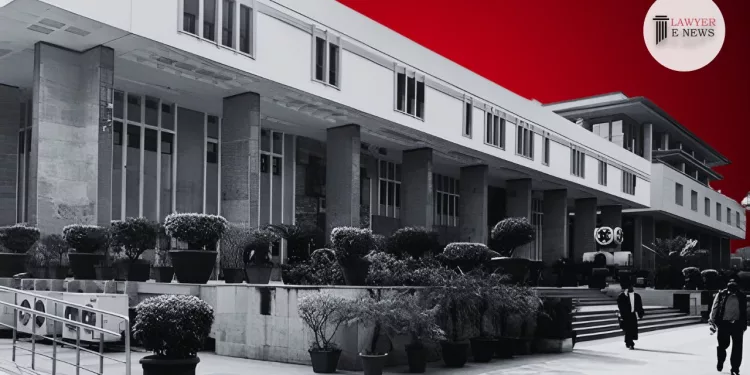Right to File SLP Crucial: Delhi High Court Grants Conditional Parole to Convict

The Delhi High Court has granted conditional parole to Amit Gulia, convicted of multiple offenses including murder, allowing him to engage counsel for filing a Special Leave Petition (SLP) before the Supreme Court. Justice Swarana Kanta Sharma’s decision highlights the significance of a convict’s right to legal representation, with parole granted under stringent conditions to ensure compliance with Delhi Prison Rules.
Background: Amit Gulia, currently serving a life sentence for offenses under Sections 302, 326, 452, 147, 148, and 149 of the Indian Penal Code, had his parole application initially rejected by the competent authority, citing unsatisfactory conduct in 2022. Gulia, however, has shown satisfactory behavior over the past year and sought parole to file an SLP against his conviction. The co-convict, Bharat Bhardwaj, was also granted parole for the same purpose, necessitating a staggered parole period to comply with prison regulations.
Importance of Legal Representation: The court emphasized the convict’s right to pursue legal remedies through chosen counsel. “The right to file a Special Leave Petition challenging the High Court’s dismissal of a criminal appeal is crucial and cannot be denied,” stated Justice Sharma, underscoring the inadequacy of relying solely on free legal aid in jail.
Compliance with Delhi Prison Rules: The decision carefully considered the conduct of the petitioner, Amit Gulia, under the Delhi Prison Rules, 2018. Despite earlier misconduct, the court noted a year of satisfactory behavior. “The petitioner’s conduct has been satisfactory in the last year, fulfilling the criteria under Rule 1210,” the judgment observed, highlighting the absence of punishments post-2022.
Simultaneous Parole of Co-Convicts: Addressing the issue of simultaneous parole for co-convicts, the court referred to Rule 1212, which generally restricts such provisions. The court ensured that Gulia’s parole would commence only after the co-convict, Bharat Bhardwaj, surrenders, maintaining compliance with the rule while accommodating exceptional circumstances.
Legal Reasoning: The judgment meticulously discussed the conditions under which parole could be granted. Rule 1208 of the Delhi Prison Rules, 2018, lists filing an SLP as a valid ground for parole. “The competent authority must consider parole applications on grounds such as filing an SLP, ensuring convicts can pursue their legal rights,” the court noted, stressing the alignment of parole with legal provisions.
Justice Sharma remarked, “Denying parole based on the availability of free legal aid in jail undermines the convict’s right to a fair legal process. It is crucial to afford them the opportunity to engage counsel of their choice for filing an SLP.”
Conclusion: The Delhi High Court’s decision to grant conditional parole underscores the judiciary’s commitment to upholding convicts’ legal rights while ensuring compliance with prison regulations. This judgment sets a precedent, highlighting the balance between strict adherence to rules and accommodating legal necessities. The conditional parole granted to Amit Gulia not only reaffirms the importance of the right to legal representation but also emphasizes the judiciary’s role in ensuring fair legal processes for convicts.
Date of Decision: May 30, 2024
Amit Gulia @ Andal vs. State of NCT of Delhi






